 This year is the 55th anniversary of the Voting Rights Act, and it comes with many reminders of the complex state of voting rights and election law in the U.S. The Covid-19 pandemic has complicated the logistics of voter registration and elections. A June report from the nonpartisan Center for Election Innovation and Research shows a significant decline in new voter registration numbers compared to the months leading up to the last presidential election in 2016. This summer the American Bar Association’s Human Rights Magazine devoted two issues to voting rights, including discussions of voter roll purges, racial gerrymandering, and cybersecurity issues and concerns.
This year is the 55th anniversary of the Voting Rights Act, and it comes with many reminders of the complex state of voting rights and election law in the U.S. The Covid-19 pandemic has complicated the logistics of voter registration and elections. A June report from the nonpartisan Center for Election Innovation and Research shows a significant decline in new voter registration numbers compared to the months leading up to the last presidential election in 2016. This summer the American Bar Association’s Human Rights Magazine devoted two issues to voting rights, including discussions of voter roll purges, racial gerrymandering, and cybersecurity issues and concerns.
Against this backdrop, we spoke recently with McGeorge Professor Emeritus Brian Landsberg about the election law course he co-teaches with Professor Mary-Beth Moylan. The course is part of McGeorge’s online Masters in Government Law & Policy.
Professor Landsberg’s teaching is grounded in his experience as an attorney in the Civil Rights Division of the United States Department of Justice, beginning in the tumultuous 1960s. At that time Landsberg was based in Alabama, helping to litigate cases involving the denial of the right to register to vote.
Marching During “Bloody Sunday”
“I was in Selma on the day called ‘Bloody Sunday,’” Landsberg says, “when state troopers and sheriff’s deputies attacked people who were marching from Selma to Montgomery to protest the denial of the right to vote.” “And that,” Landsberg continues, “led to the adoption of the Voting Rights Act, and I worked on cases to enforce it.” In his role as a lawyer in the U.S. Department of Justice Civil Rights Division, Landsberg explains, “my first responsibilities were to help litigate cases involving the denial of the right to register to vote in Alabama.”
The work Landsberg did gave him the raw material for a book he wrote about the Alabama origins of the 1965 voting rights act. Landsberg’s book, Free at Last to Vote: The Alabama Origins of the Voting Rights Act, explains how work done quietly in district courtrooms of the South paved the way for groundbreaking civil rights legislation. It addresses how the Voting Rights Act came about by focusing on several key cases in Alabama.
Landsberg Role in the Voting Rights Act
Landsberg’s direct role in the work that helped shape the passage of the Voting Rights Act informs his election law course and the central position of the Voting Rights Act within the curriculum. Landsberg’s course devotes two weeks exclusively to the Voting Rights Act.
“The first of those two weeks,” Landsberg explains, “focus on what were called the special provisions of the Act. The special provisions targeted states that have a history of denying the right to vote based on race.” “In those states,” Landsberg continues, “the Attorney General of the U.S. could appoint people to register voters where the local registrars refused to register them to vote. The Attorney General could send observers to the polling places to make sure elections were fairly run. And, if a state wanted to change its voting laws, the Attorney General could review the changes because the state had to prove that the change would not have the purpose or effect of discriminating based on race. The course goes over these special provisions in great detail.”
After spending a week focusing on the special provisions of the Act focused on certain states, Landsberg says students spend another week studying the section of the Voting Rights Act that applies nationally. “This part of the Act,” says Landsberg, says that “states may not apply any voting standard or practice that has the result of discriminating based on race.”
Other topics in the McGeorge election law course include racial and political gerrymandering, constitutional principles, election administration, and major and minor political parties. Issues of campaign finance, bribery, and public financing of elections are also addressed.
The Voting Rights Act Today
The Voting Rights Act is incredibly relevant today, says Landsberg. Its provisions speak to questions the public raises about voter suppression, voter fraud, mail-in voting, early voting, and polling places. The course and the grounding it provides in voting rights is useful to all students of government law and policy, and especially useful to students working in government agencies, with campaigns, or who are otherwise engaged with elections.
Contact McGeorge School of Law
McGeorge’s Master in Government Law & Policy degree is a fully online graduate program designed for people interested in a deep dive in government law and policy but who do not need a JD to achieve their career goals. The Master of Science in Law (MSL) is earned through a convenient part-time, online program, specifically designed for students and professionals who need flexibility due to work, professional, or other obligations and who want to further their education and advance their career.
